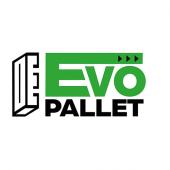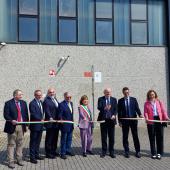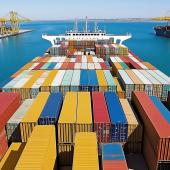Sustainability. The point of view of... Gruppo Nestlé Italia
Sustainability as part of the management strategy: a word from Marta Schiraldi, Safety, Health, Environment and Sustainability Head of Gruppo Nestlé Italia. Maria Costanza Candi, Luciana Guidotti
Very active on the sustainability front, the Gruppo Nestlé has shown great capacity for innovation, responding to the ethical demands of environmental issues and adapting to the context with design and organisational vitality. It is in this context that Nestlé has made important investment decisions on a number of fronts.
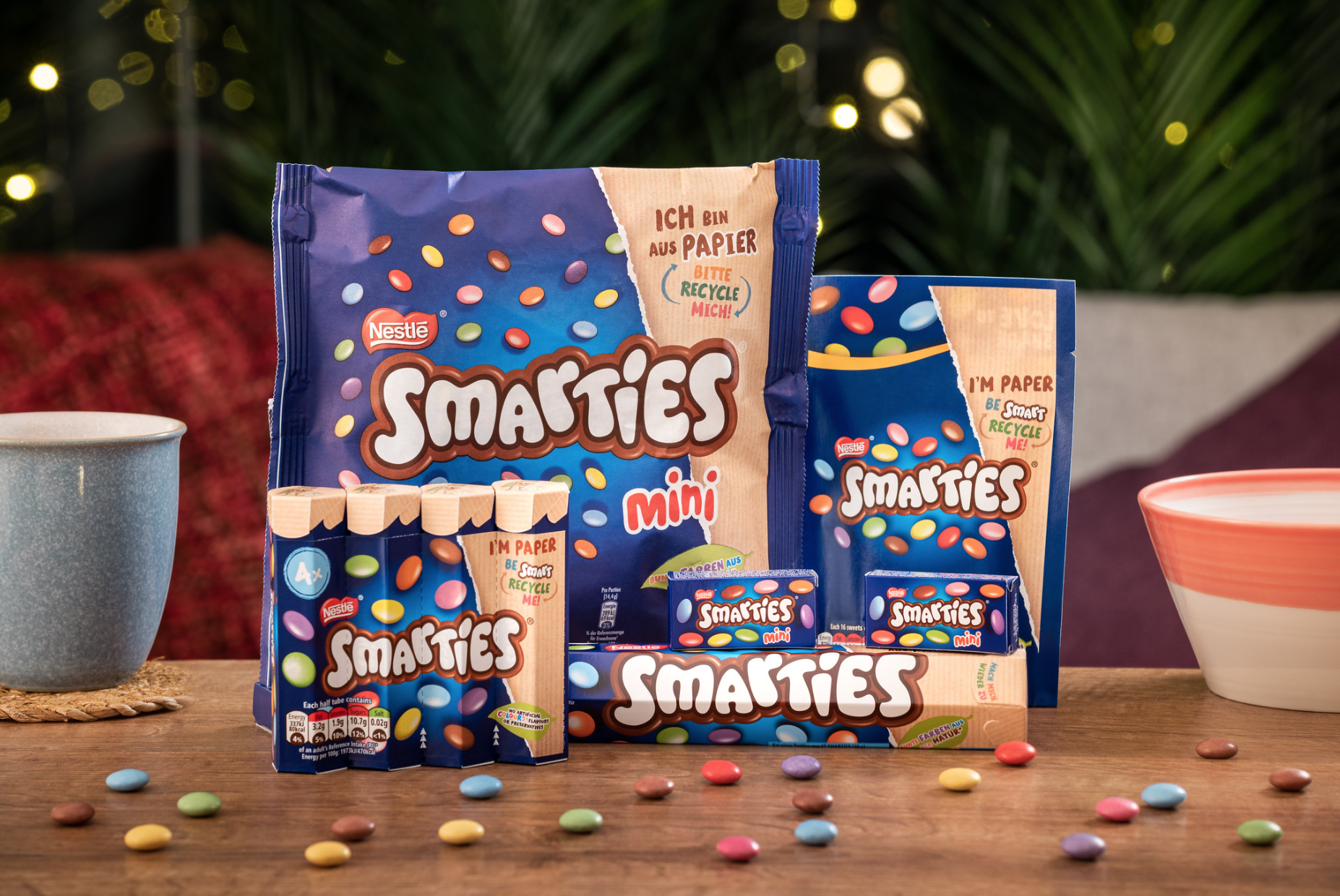
Think of the 1.5 billion Swiss francs invested to push recycled plastic for food use, reducing the use of virgin product by a third by 2025; the inauguration, in September 2019, of the Nestlé Institute of Packaging Sciences in Lausanne, Switzerland, the first experience of its kind, dedicated to the sustainability of packaging and the experimentation in the food industry of new bio-based and biodegradable materials; or the choice of a key managerial figure dedicated to sustainability issues that closes the circle of a commitment with significant impact on the entire supply chain involved by Nestlé.

Marta Schiraldi, Safety, Health, Environment and Sustainability Head of the Gruppo Nestlé Italia Group, tells us about what has been done and about the many ideas for a sustainable future.
Sustainability is a theme whose value is now fully assumed by public opinion: how would you define the relationship between the increased sensitivity of consumers and the role of innovation played by the major players?
It’s a very good question, which speaks of a theme that has been on everyone’s mind for years. The relationship between consumers and green is now very close, with conscious choices and attention that pushes the big brands to a much more active role than in the past.
At Nestlé, we feel invested in this mission and have set a global goal of making 100% of our packaging recyclable or reusable by 2025. In the same timeframe, we aim to reduce the use of virgin plastic by one-third.
At the Italian branch, we also implement actions that involve the entire supply chain that concerns us, working with our partners to strengthen the role of social and environmental responsibility that we believe we have. We try to do this through positive interaction with both consumers and stakeholders.
What does this interaction translate into?
Nestlé Italia has close relationships with consortia and institutions operating in Italy in the management of packaging recovery and end-of-life. The team working on sustainability has a program of regular meetings to align synergies, move towards joint innovation projects and learn about the needs of the recovery and recycling infrastructure, which is key to defining packaging end-of-life management strategies.
The objective is also to maintain a strong link between the Italian reality and the Nestlé Institute of Packaging Science, putting in place an exchange of knowledge on the end of life of packaging, when it becomes waste, to design products that are truly recyclable.
We want to play a proactive role in sustainability, keeping the entire product cycle in mind, which for us has meant initiating innovative services. We take care of all the supply chains, taking into account the aspects that have an impact on sustainability in order to make a positive contribution at every stage.
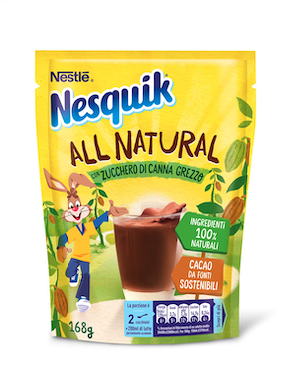 Sustainability of packaging therefore means research into new materials, the study of innovative and “responsible” design, ad hoc communication capable of underlining the characteristics of an evolved and ethical packaging, made with less waste of resources, recyclable. A useful weapon for marketing?
Sustainability of packaging therefore means research into new materials, the study of innovative and “responsible” design, ad hoc communication capable of underlining the characteristics of an evolved and ethical packaging, made with less waste of resources, recyclable. A useful weapon for marketing?
We constantly monitor the journey we are making into green, which for us is not “simple” marketing but rather an expression of fundamental values, such as quality, safety at work and health.
Marketing actions come later, useful to support the awareness of the consumer who, if involved, joins the company and the stakeholders to give an effective contribution to the journey. Without interaction, the result is certainly less effective.
The sustainable packaging commitment is therefore a fundamental pillar of Nestlé’s sustainability and growth strategies, because without a common commitment, it becomes difficult to generate shared value for society, while safeguarding the planet.
What objectives have already been achieved and can be reached?
On the Italian market, Nestlé can boast important results, such as 96% of recyclable packaging produced in Italy. This is attested to by the data contained in the Nestlé Sustainable Packaging Commitment Road to 2025 report, which declares 100% recyclability for corrugated cardboard and glass, 98% for paper, 87% for aluminium, 90% for rigid and 80% for flexible plastic, all with the prospect of increasing this figure to 100%.

With our R&D we work on eco-design, but we are confronted with the Italian market and the very stringent sustainability criteria required in our country. The relationship with the context is therefore strong and dynamic, with concrete actions such as 96% of recyclable packaging produced in Italy. We use marketing to increase awareness, starting with that of Nestlé personnel: our colleagues are ambassadors of sustainability and this is why we carry out many internal communication activities.
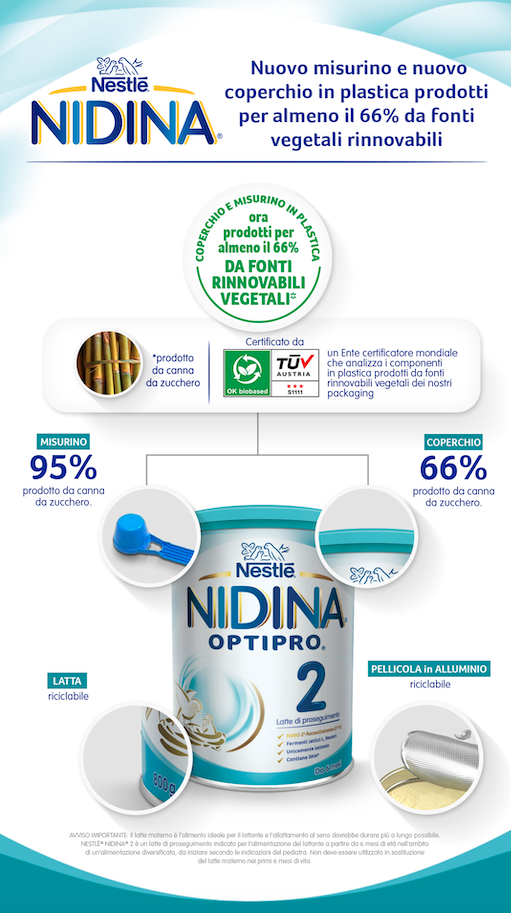 The pillars of your action are an interesting mix of social commitment, packaging design and communication... What are the repercussions on logistics, shelf display, labeling (which, ultimately, is the most immediate means of establishing contact with the consumer)? Can you give us your point of view on this new deal?
The pillars of your action are an interesting mix of social commitment, packaging design and communication... What are the repercussions on logistics, shelf display, labeling (which, ultimately, is the most immediate means of establishing contact with the consumer)? Can you give us your point of view on this new deal?
Yes, summing up we have embarked on a path that includes: R&D and eco-compatible design for the development of innovative solutions that support the entire supply chain and meet the 2025 commitment; eco-design and design of the reuse component, carried out in collaboration with external companies that operate on green issues; an education program on environmental awareness, so that consumers, customers and Nestlé colleagues adopt correct behaviors.
Sustainability of packaging and product: a principle that, in addition to environmental protection, extends to respect for the territory, social issues and food safety, closing a virtuous circle. What is your vision of new lifestyles and consumption?
Obviously we welcome the growing attention of consumers to the environment and, consequently, the demand for increasingly green products. We must realize that the planet is one and it belongs to everyone, so each of us can and must contribute to its protection, even with small daily gestures such as, for example, the proper separation of waste.
We want to act positively by working, I repeat, on awareness; the path of innovation must include substantial issues such as, for example, attention to quality and food safety, which in our great challenge, must remain unchanged while making sustainable choices. Consumers are increasingly demanding greater activism from companies, starting with the product.
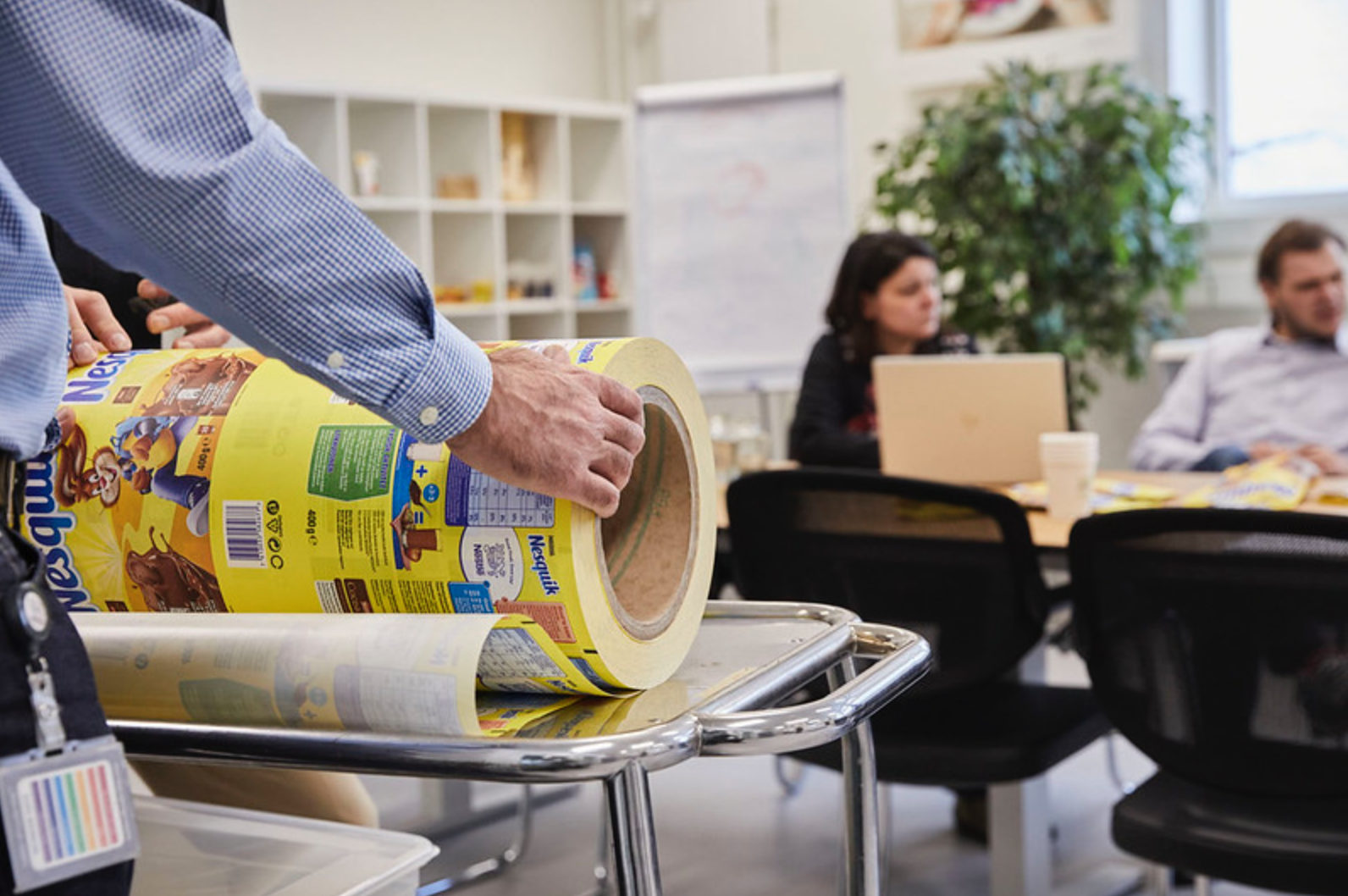
That’s why we have developed “Where do I throw it?”, a digital platform created to provide concrete support to consumers, educating them on the correct way to dispose of the different materials that make up the packaging of Nestlé products, according to the regulations in force in the various Italian municipalities.
In this way, we provide a solution to better differentiate waste, using the scanning of the barcode on the packaging. If we think about it, until a few years ago it would have been unthinkable to propose the use of such a tool, precisely because environmental awareness was less developed. This too is a sign of the times, which makes us look to the future with optimism.
The Nestlé project is open to other brands and partners, precisely in order to extend the effectiveness of sustainability action. Well-known names, such as Lactalis, have already taken up the common challenge and are participating with their products in the app, thus supporting the effectiveness of mindful end-of-life management, with the active support of Nestlé.














